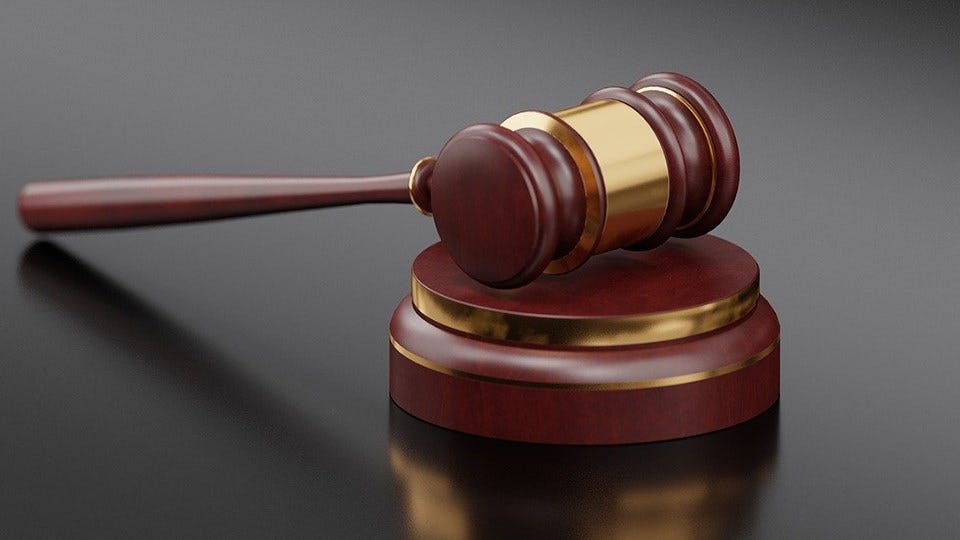Judge grants class action certification for abortion ban lawsuit
Subscriber Benefit
As a subscriber you can listen to articles at work, in the car, or while you work out. Subscribe Now
A lawsuit that seeks to strike down the state’s near-total abortion ban on the basis of Indiana’s controversial religious freedom law was certified Tuesday as a class action by a Marion County Superior Court judge.
The legal challenge was filed in August by the American Civil Liberties Union (ACLU) of Indiana on behalf of Hoosier Jews for Choice, as well as four anonymous women who represent a variety of faiths.
The lawsuit argues that the new abortion law violates Indiana’s Religious Freedom Restoration Act (RFRA).
The plaintiffs include practitioners of Judaism, Unitarian Universalism, Episcopalianism and paganism — all belief systems that allow abortions under circumstances outside the ban’s narrow exceptions.
The ACLU asked the court in September to grant certification of a class that includes all Hoosiers whose religious beliefs “direct them to obtain abortions in situations” prohibited by Senate Enrolled Act 1 — the near-total abortion ban — and “who need, or will need, to obtain an abortion and who are not, or will not be, able to obtain an abortion because of the Act.”
According to Indiana Trial Rule 23, for a lawsuit to be certified as a class action case, one or more members of a class may sue or be sued only if:
- the class is so numerous that joinder of all members is impracticable;
- there are questions of law or fact common to the class;
- the claims or defenses of the representative parties are typical of the claims or defenses of the class; and
- the representative parties will fairly and adequately protect the interests of the class.
In her 29-page order, Welch determined that all of the unnamed plaintiffs in the case share a common claim with those that are named, that there is a large group of potential plaintiffs and that the named plaintiffs have claims that are representative of the entire class.
“Even within denominations, there are legitimate disagreements among observant followers on how members of a particular religion should approach issues in our world in accordance with articles of faith,” Welch wrote in her ruling. “The Court’s role then is to determine that the alleged religious infringement is objective and observable rather than rely solely on the subjective assessment of the class members.”
The state opposed the proposed class, saying in multiple court filings that it depends on class members’ “individual circumstances, states of mind, and subjective beliefs at any given moment.”
The Indiana Attorney General’s Office argued that there is not an objective way to determine who would be motivated by religious reasons to obtain an abortion, and that there is no consensus among the religions, to which the current plaintiffs belong, “over whether and what circumstances the plaintiffs would be directed to obtain an abortion as part of their religious practices.”
Welch conceded that “there are certainly conflicts within religious traditions on when a practitioner may be compelled to seek an abortion on religious grounds.”
But the judge maintained in her ruling that there is “sufficient evidentiary support that the religions to which plaintiffs and putative class members belong would guide its practitioners to seek abortions under particular circumstances based on testimony from leaders of these faiths.”
This is the second case involving the ban. In January, Indiana Supreme Court justices heard a case against the ban based on liberty and privacy rights. They have not issued a ruling.
The new abortion ban was in effect for just a week in September before a Republican judge in Owen County issued a first temporary injunction in a separate ACLU lawsuit, which challenges the constitutionality of the law based on liberty and privacy protections.
The decision put the ban on hold while Indiana Supreme Court justices continue to weigh the case. Under that injunction, the state’s previous abortion law stands — allowing abortions up to 20 weeks.
The Republican-dominated Indiana General Assembly advanced the abortion-restricting measure during a heated, two-week special session that concluded in August. That made Indiana the first state in the nation to approve such legislation since the high court ruling that overturned Roe v. Wade.
The ban outlaws all abortions except in the case of a fatal fetal anomaly and cases of serious health risk to the mother. One part of the law says these exceptions are up to 20 weeks but another part says they can be used anytime. Rape survivors can get an abortion up to 10 weeks post-fertilization.
It also strips abortion clinics of their state medical licenses, and provides that only hospitals and hospital-owned ambulatory surgical centers can provide abortions.
The Indiana Capital Chronicle is an independent, not-for-profit news organization that covers state government, policy and elections.
